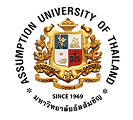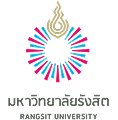Comprehensive Overview of Thailand
The education system of Thailand is evolving with the blend of the old, conventional Thai universities and the globally accredited universities. Thailand is attracting the students with the courses that come with great variety, most of which being English, and with the optimum balance of the heritage-rich and the life amenities. Affordable cost of living and friendly atmosphere, Thailand is also emerging as a favourite destination for the students from all around the world.
| Category | Details |
|---|---|
| Languages | Thai (official), English (common in higher education) |
| Degree Options | Bachelor’s, Master’s, PhD |
| Popular Fields of Study | Business, Engineering, Hospitality, Medicine, Agriculture |
| Main Intakes | January/June/August |
| Required Exams | TOEFL or IELTS (for English-taught programs) |
| Visa | Non-Immigrant Education Visa (ED Visa) required |
| Average Tuition Fees (per year) | Bachelor’s: 650,00 – 250,000 THB per year (approx. 2000 – 7,500 USD) Master’s: 100,000 – 300,000 THB per year(approx. 3,000 – 9,000 USD) |
| Living Costs (monthly) | 10,000 – 20,000 THB (approx. 300 – 600 USD) |
| Work Opportunities | Part-time work allowed (up to 20 hours/week) with proper permit |
| Scholarships | Available through Thai government, universities, and international organizations |
| Application Deadlines | Vary by university and program (typically 3–6 months before the semester start) |
| Required Documents | Passport, academic transcripts, proof of English proficiency, recommendation letters,Photo |
Key Reason to Choose Thailand
The country offers a great combination of low-priced education, rich culture, and great facilities, making it a suitable destination for foreign students seeking top-quality education along with a unique experience of life.
Partnered with 500+ Trusted Universities Worldwide
Student Visa Requirements
Non-Immigrant ED Visa is required for foreign nationals to pursue studies in Thailand. They should present the following documents: the admission letter of the recognized institution, proof of sufficient finance for tuition fee payment and subsistence, a valid passport, and any other documents the Thai consulate or embassy may require. The visa is usually for 90 days and needs to be extended after arriving in Thailand- for this the university will help.
Cost of Living & Budgeting
The cost of living is considerably low compared with other countries abroad. You will be required to foot the bills for accommodation, food, transport, and leisure. With a variety of low-budget alternatives available—street food and up-to-date facilities for the city ones—frugal budgeting can see you lead a comfortable, sustainable, and happy life as you pursue your studies.
Accommodation Options
Thailand offers diversified accommodation for varied lifestyles and budgets. Dorms on campus and hostels for students are convenient and promote friendships, with off-campus apartments, shared flats, and homestays being independent. All these have their advantages, and the students should decide what is most suitable for their personal and educational needs.
Work & Internship opportunities
It is possible for international students to work part-time according to the visa regulations. There is a strong connection of most universities with the industry, and many opportunities for work-integrated learning and internships, which give valuable practical experience. These may be utilized for financing the cost of living and for developing vocational skills, paving the way for future employment opportunities.
Get the Answers You Need for Studying in Thailand
Below are some of the most asked questions on studying in Thailand:
Although the national language is Thai, most of the universities offer English courses for foreign students.
Yes, international students also normally request English ability test scores such as IELTS or TOEFL for English courses.
The primary intakes for scholars tend to be June/July, but some institutions also offer secondary start dates of November.
The students will be asked to obtain a Non-Immigrant ED Visa, for which a letter of admission, proof of finance, and other documents the Thai Government may demand will be required.
Yes, international students may be qualified for a variety of funding, including Thai government scholarship, university financial aid, and sponsorships from the private sector.



